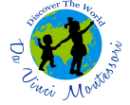“Our care of the child should be governed, not by the desire to make him learn things, but by the endeavor always to keep burning within him that light which is called intelligence”
- dr. Maria montessori


Experiences with the environment enable a better understanding of this world.

Our environment facilitates these experiences through various areas of the curriculum
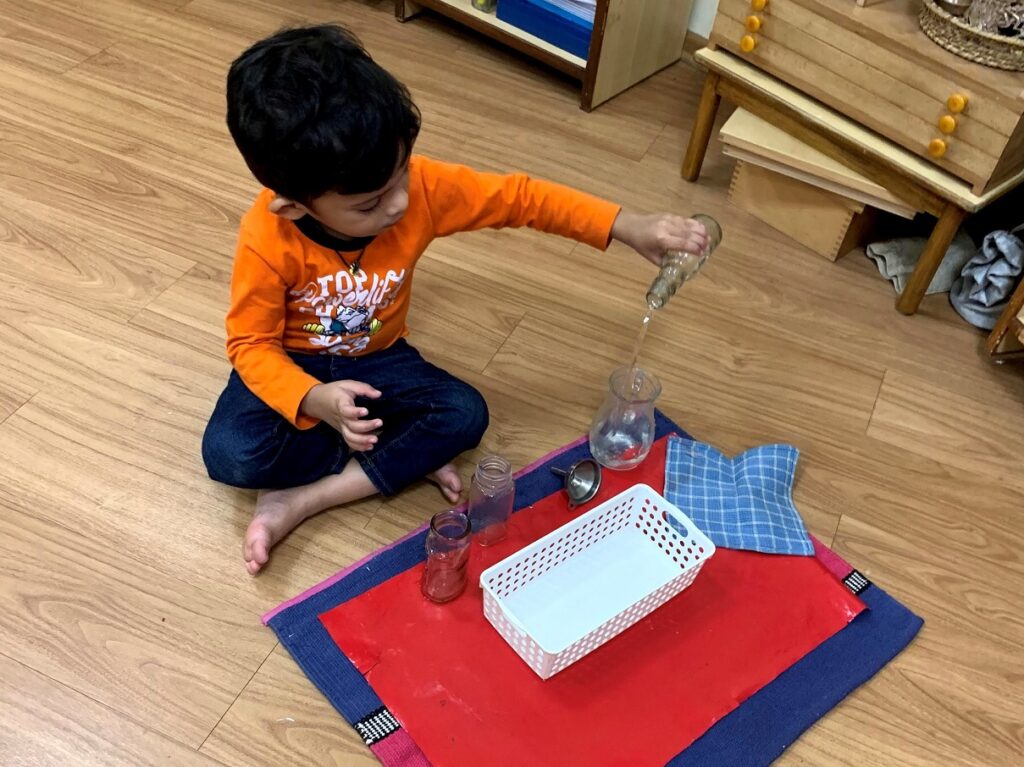
Practical life
Skills of daily life
Children love to imitate adults – whether it be sweeping, cooking, chopping; they want to do what we do. All these day to day activities, Dr. Montessori called Exercises of Practical Life. They are roughly categorized into ‘Care of Environment’, ‘Care of Person’ and ‘Grace and Courtesy’. By performing these activities the child adapts to the world around him. He develops concentration and the ability to work towards perfection. He develops his will power and gains better coordination of movement. He also gains a deep level of satisfaction and at the same time develops confidence in his own abilities.
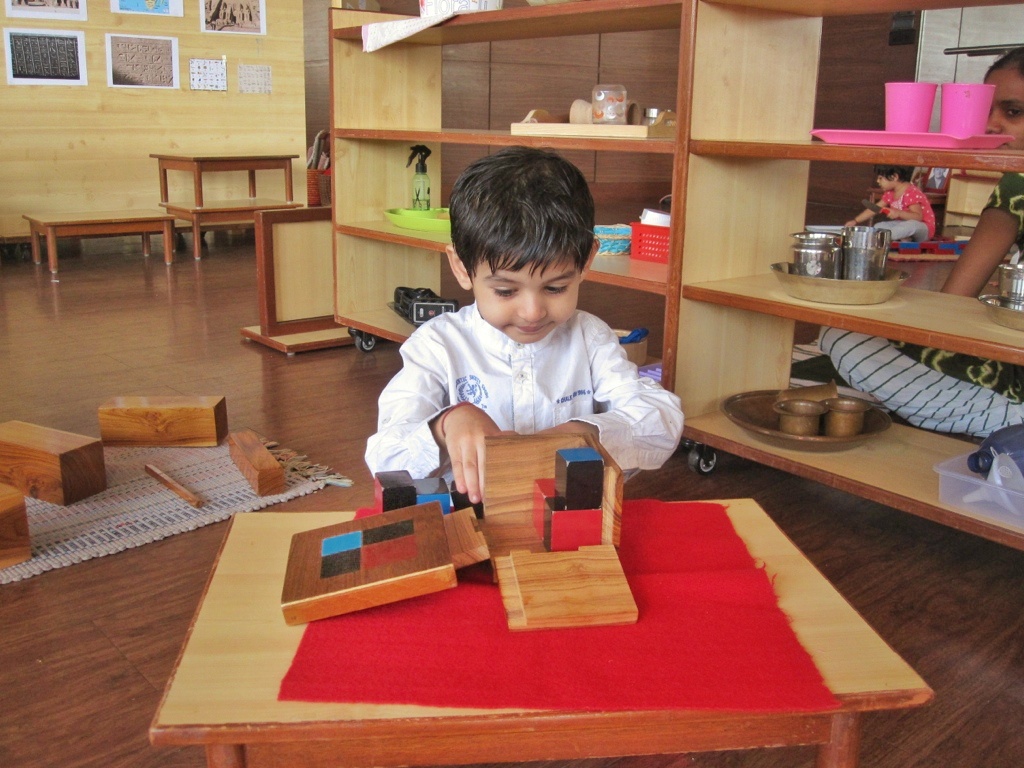
Sensorial Refinement
Exploring the world through the senses
Our environment is replete with sensorial stimulus. As soon as a child is born he starts to explore the world – colours, shapes, textures, smells and tastes. The Sensorial Material is scientifically designed to further refine each of the senses of the child. The colour and precision makes every piece of material visually attractive to the child. The material needs to the handled precisely by the child and the built in 'control of error' encourages a child to repeat the activity until he reaches perfection.
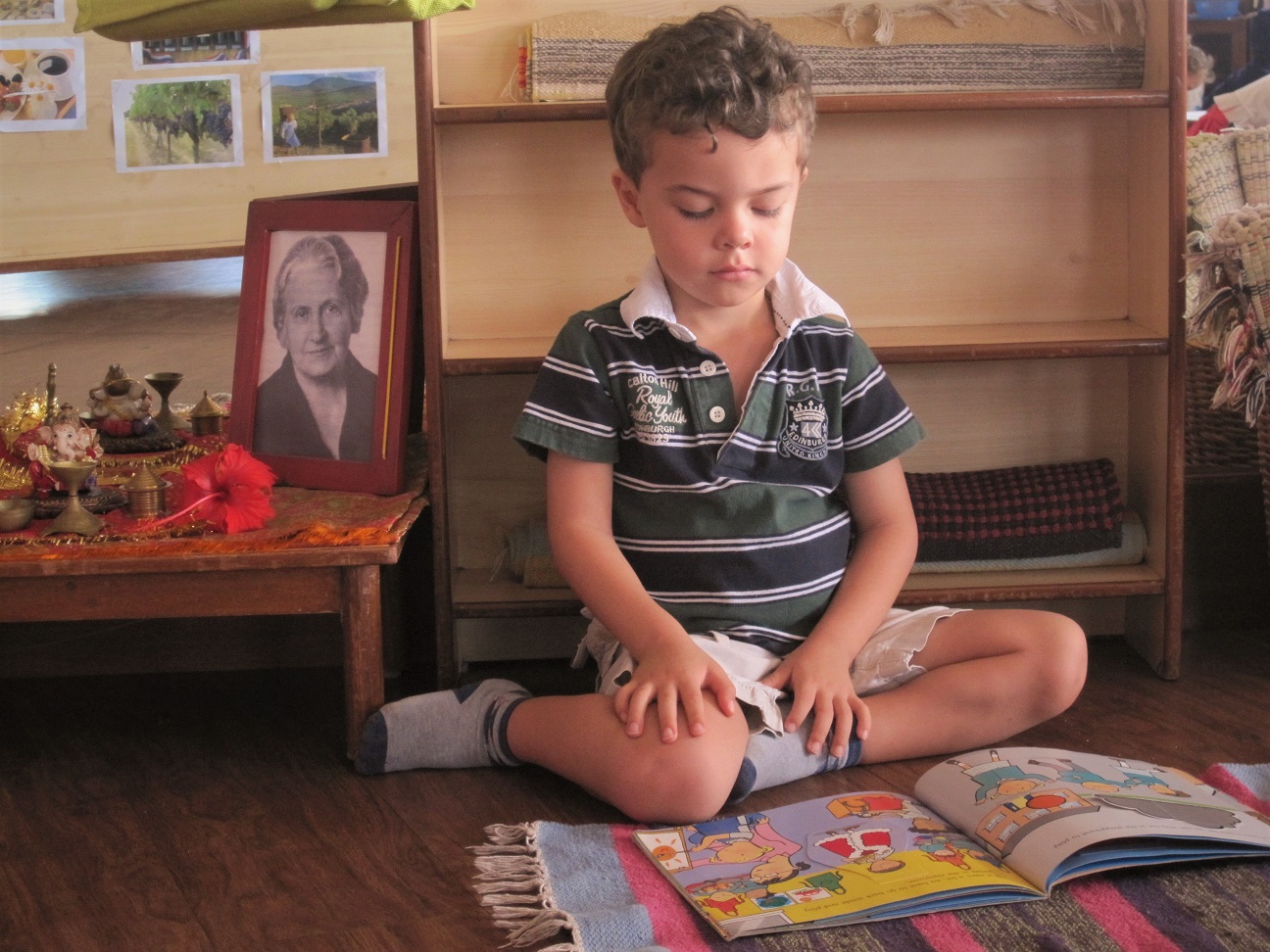
Language Development
From the spoken word to the written word
From gurgles and cries at birth, to talking sentences, children learn to talk before we know. The Sensitive Period for language is the longest and so right from birth the child begins the process of absorbing language and its nuances. Our language material and spoken language in class helps the child’s verbal expression, his comprehension and helps him to read and write with ease. The preparation and transition towards reading and writing comes through a variety of activities in Exercises of Practical Life, Sensorial and Culture.
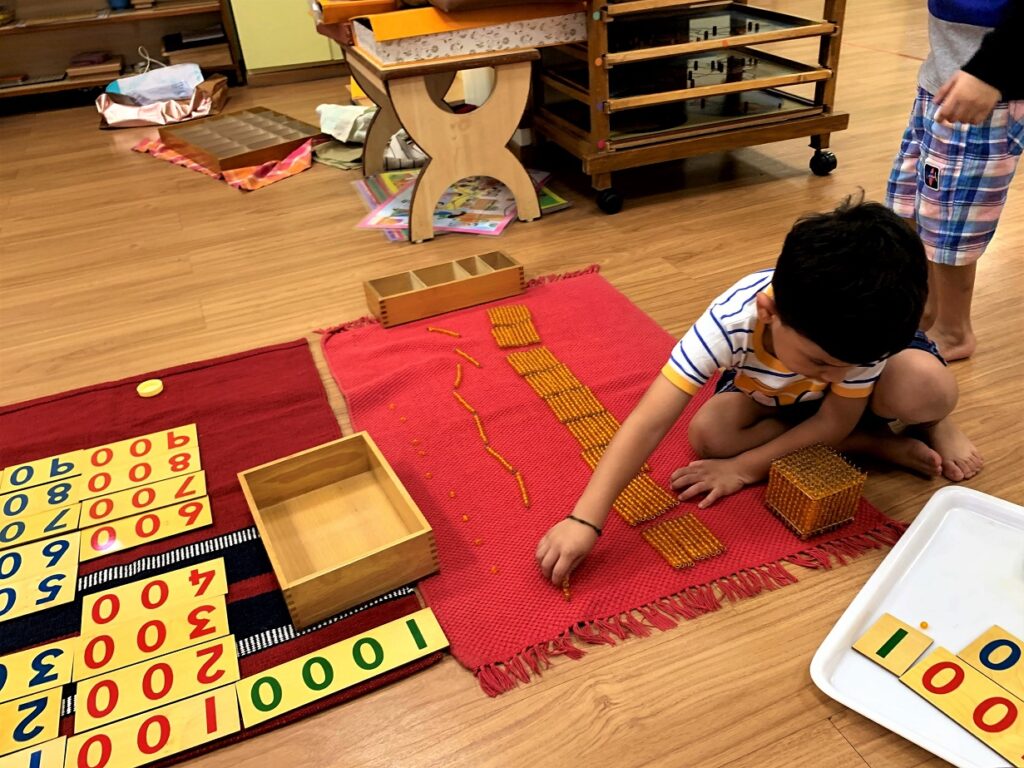
Mathematics
From concrete to abstract
Lessons presented in the practical life and sensorial curriculum lay the groundwork for the child to begin to explore the world of math. The concrete math materials enable the naturally mathematical mind of the preschool child to progress from the concrete to the abstract through manipulation and experimentation. Children first explore the concept of quantity or “how many”. From there the child moves on to using symbols or written quantities and then begins to combine quantities for the operations of addition, subtraction, multiplication and division.

Every area includes activities built on top of the other. stacked & Interconnected.

every activity is designed to teach just one specific aspect.

This infuses clarity & creates a strong foundation & everlasting Connections .
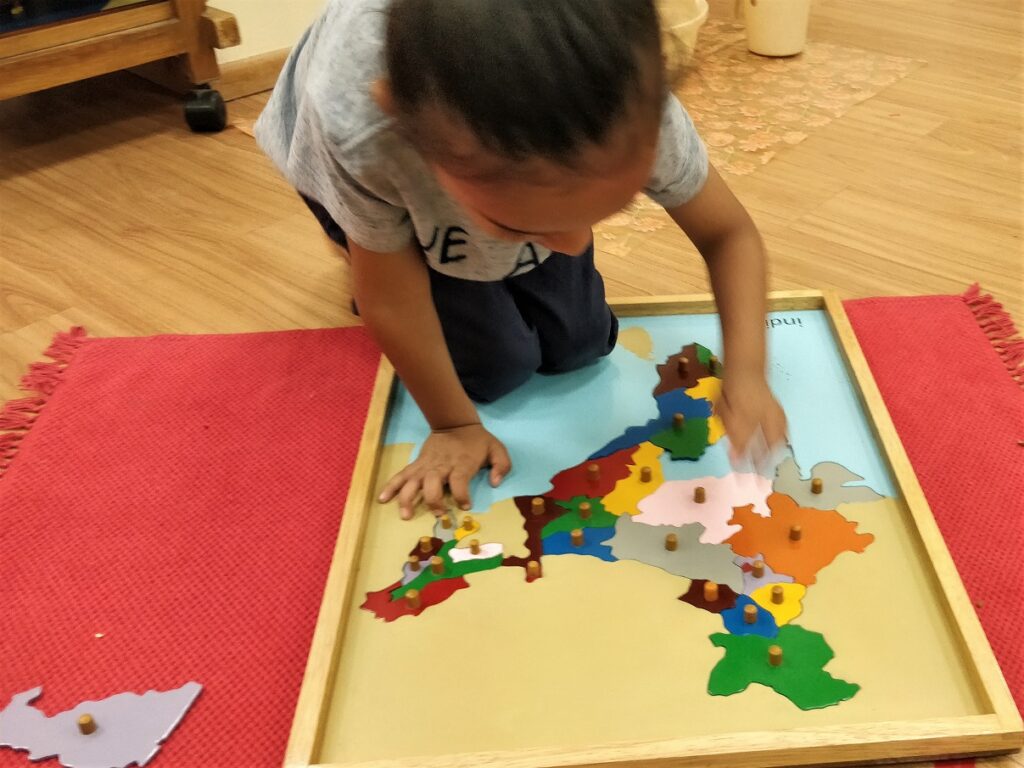
Culture
Science and the world around us
Dr. Montessori defines culture as everything that is man made. From art, music, drama, to geography, history, geometry, physics, botany, zoology – all are introduced as part of culture. The lessons are presented through real experiences. These real experiences are backed up by hands on activities which ingrain the lesson in the mind of a child. Speakers from various walks of life come into the classroom giving children a perspective of the real world.
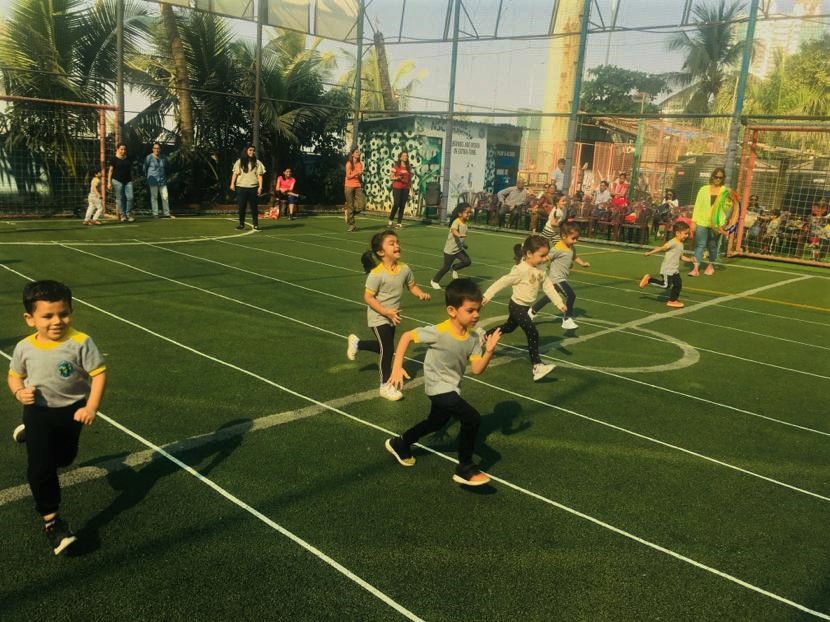
Physical Fitness
Healthy body, healthy mind
Da Vinci Montessori in partnership with a trained gym instructor will provide regular fitness activities such as jumping, bending and stretching. Children will enjoy a variety of exercises and at the same time develop an appreciation for fitness. Our classroom lessons will emphasize the importance of a healthy diet and make children aware of how food helps them grow.
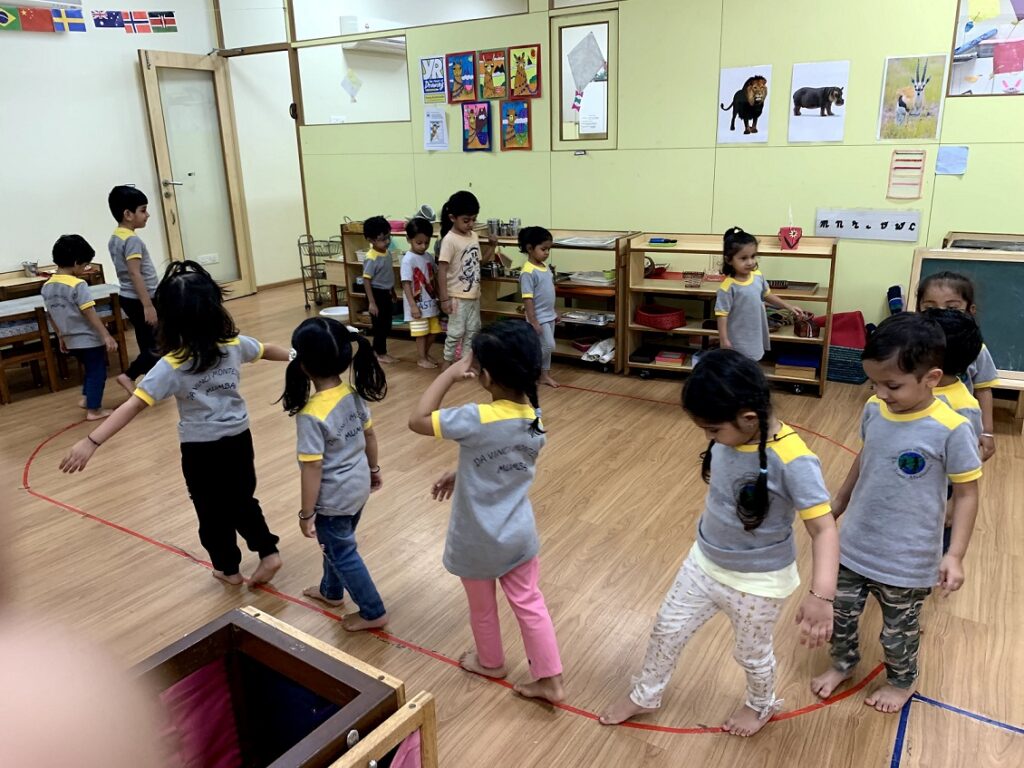
Music
Global rhythms
Music is a natural way to start building the brain’s connections and develop the infant brain. Music affects and works on all levels of development: social, emotional, physical and cognitive growth. We expose our children to music in our class everyday. A combination of rhymes and instrumental music from around the world help enhance the vocabulary of the child and at the same time expose him to varied cultures.

Art
Creation
Paper, crayons, paint, scissors, glue are made available to the child and help nourish the artist within. Children will be guided through activities that include stamping, painting with various objects and on different textures, cutting paper, sticking and making patterns. Children love to get their hands dirty and we let them.
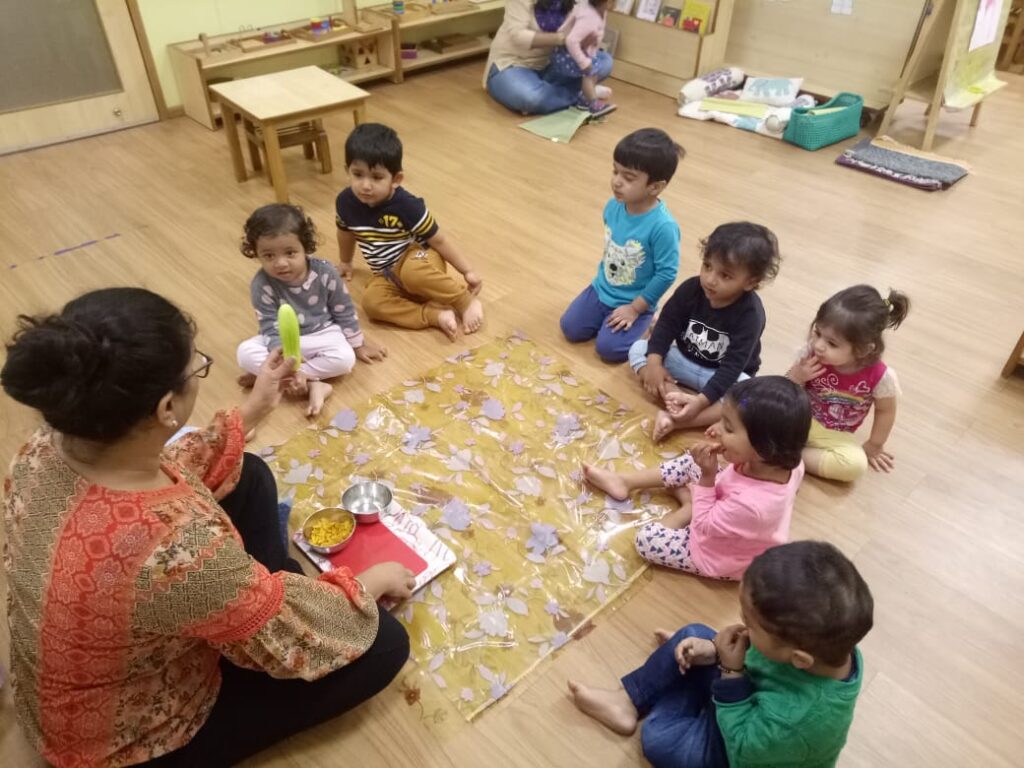
Food Preparation
Discovering the gustatory sense
Working with food gives children a plethora of sensorial experiences – mashing a banana, smelling masalas or squeezing juice from an orange and then tasting it all. When children cook not only are they emulating the grown-ups, they’re also discovering where food comes from and learning about nutrition. Cooking is integrated in our classroom activities. We let children discover the pleasures of cooking, serving and eating.
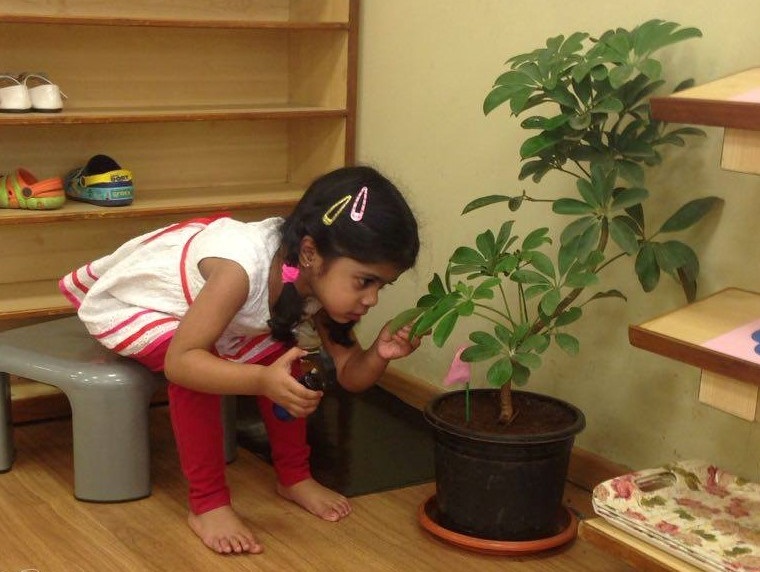
Gardening
Connecting with nature.
Children have an inherent draw towards nature. Gigantic trees, colourful flowers, dainty creepers fascinate a child. In our classroom children enjoy sowing seeds and watching them grow, watering plants and seeing flowers bloom, cleaning leaves and watching new tender leaves appear. Additionally our outdoor trips make the child aware of a variety of plants and flowers that surround them – they can touch the leaves, smell flowers and watch insects crawl.

By feeding the curiosity of children with the right knowledge.

With an unshakable belief that these 6 years are never to come back again.

